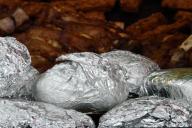Not only animals, but also insects can be quite amazing!
For instance, different kinds of wasps can have many unusual habits that might surprise you.
Let's find out more about different kinds of wasps and what makes them special.

Orchid Wasps
Orchid wasps are fascinating insects that have a special relationship with orchid flowers.
The female wasp collects pollen from orchids using special structures on her body and transports it to other orchids as she searches for suitable places to lay her eggs.
This interaction helps with orchid pollination.
Spider Wasps
Spider wasps are known for their unique hunting behavior.
The female wasp captures spiders, paralyzes them with a sting, and then carries the immobilized spider to her nest.
She lays her eggs on the spider, providing a fresh food source for her offspring when they hatch.
Mud Daubers
Mud daubers are wasps that build nests using mud.
They collect wet mud, shape it into small tubes or cells, and then bring paralyzed spiders to stock their nests.
Once the cells are filled with spiders, the female wasp lays her eggs inside.
When the wasp larvae hatch, they consume the spiders as their food source.
Gall Wasps
Gall wasps have a unique way of interacting with plants.
The female wasp lays eggs on plant tissues, and when the eggs hatch, the developing wasp larvae release chemicals that cause the plant to form abnormal growths called galls.
These galls provide protection and food for the growing wasp larvae.
Cuckoo Wasps
Cuckoo wasps are known for their clever behavior.
Instead of building their own nests, the females lay their eggs in the nests of other solitary wasp species.
The cuckoo wasp larvae hatch first and then consume the provisions intended for the host wasp's offspring, ensuring their survival at the expense of the host's offspring.
Recently, we talked about opossum myths.













